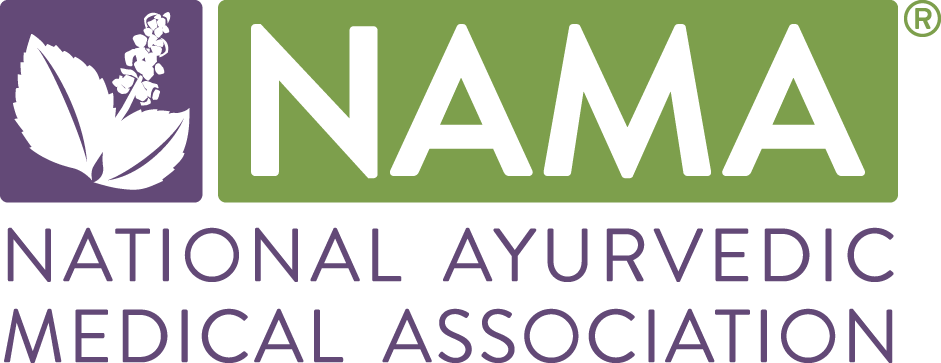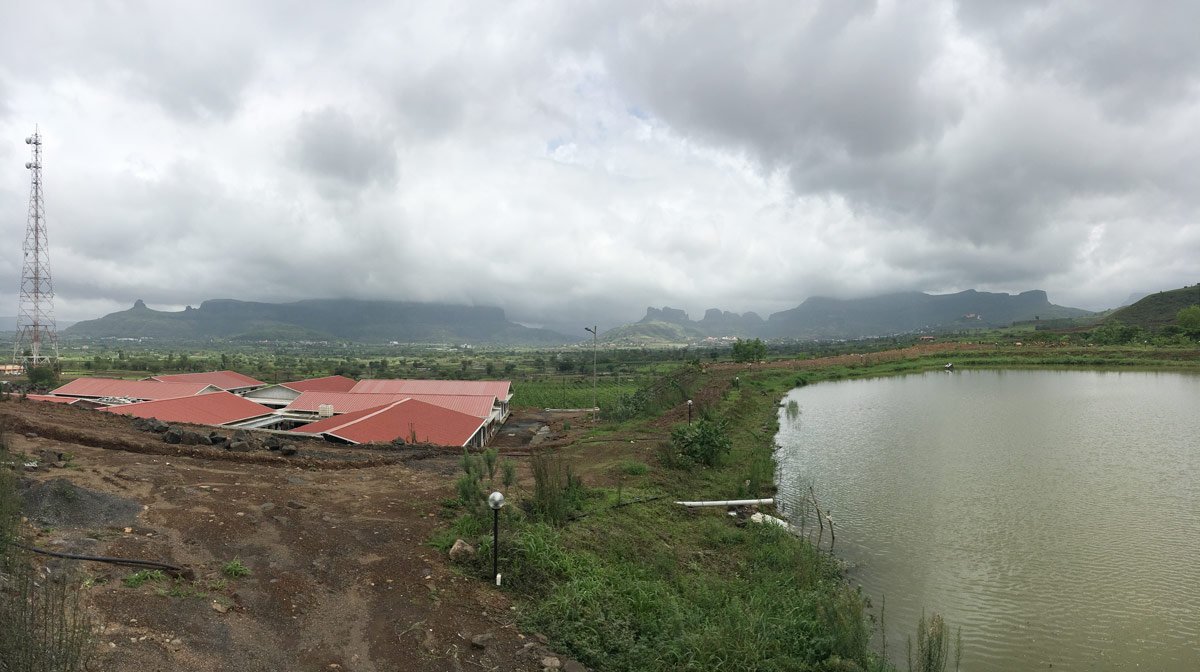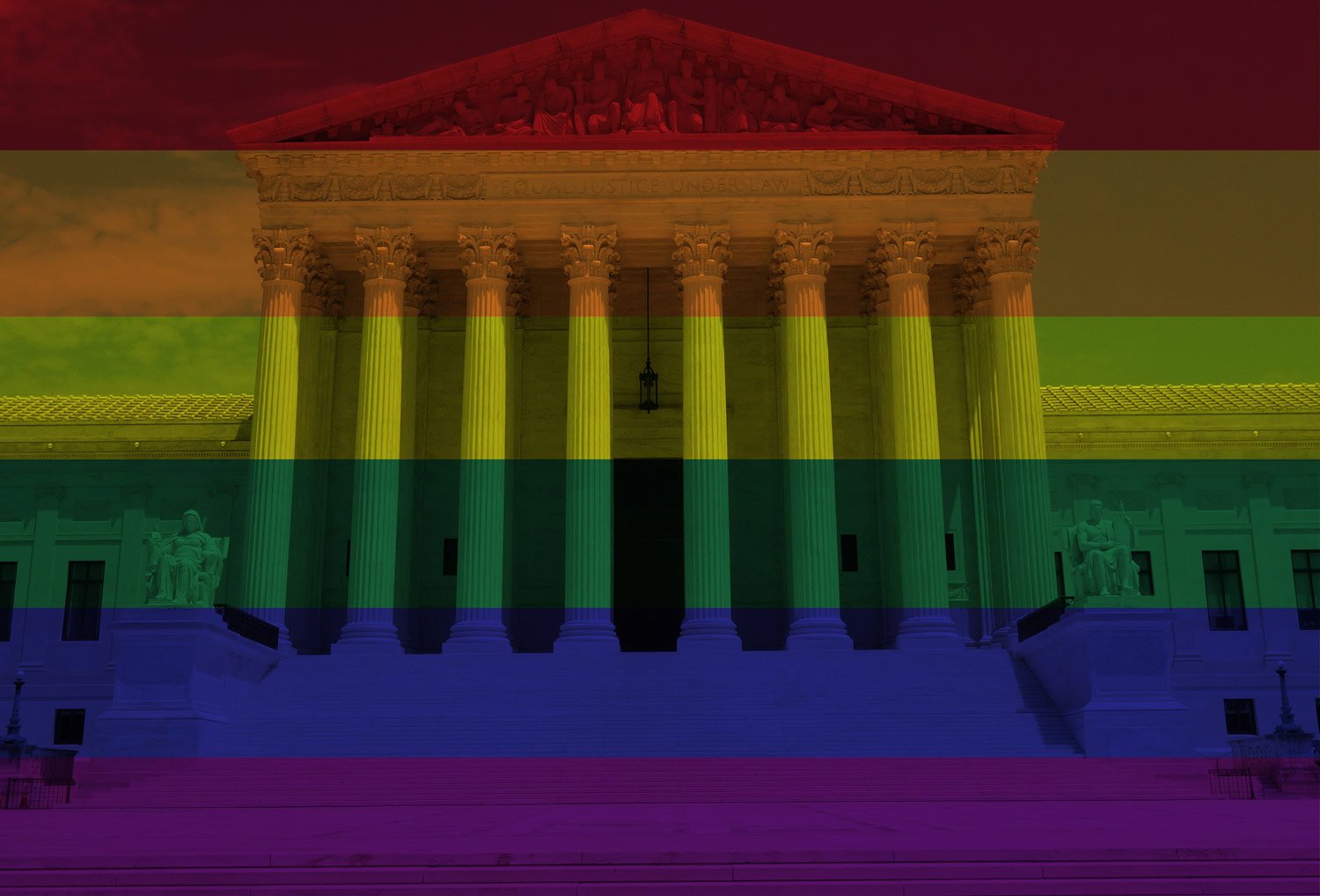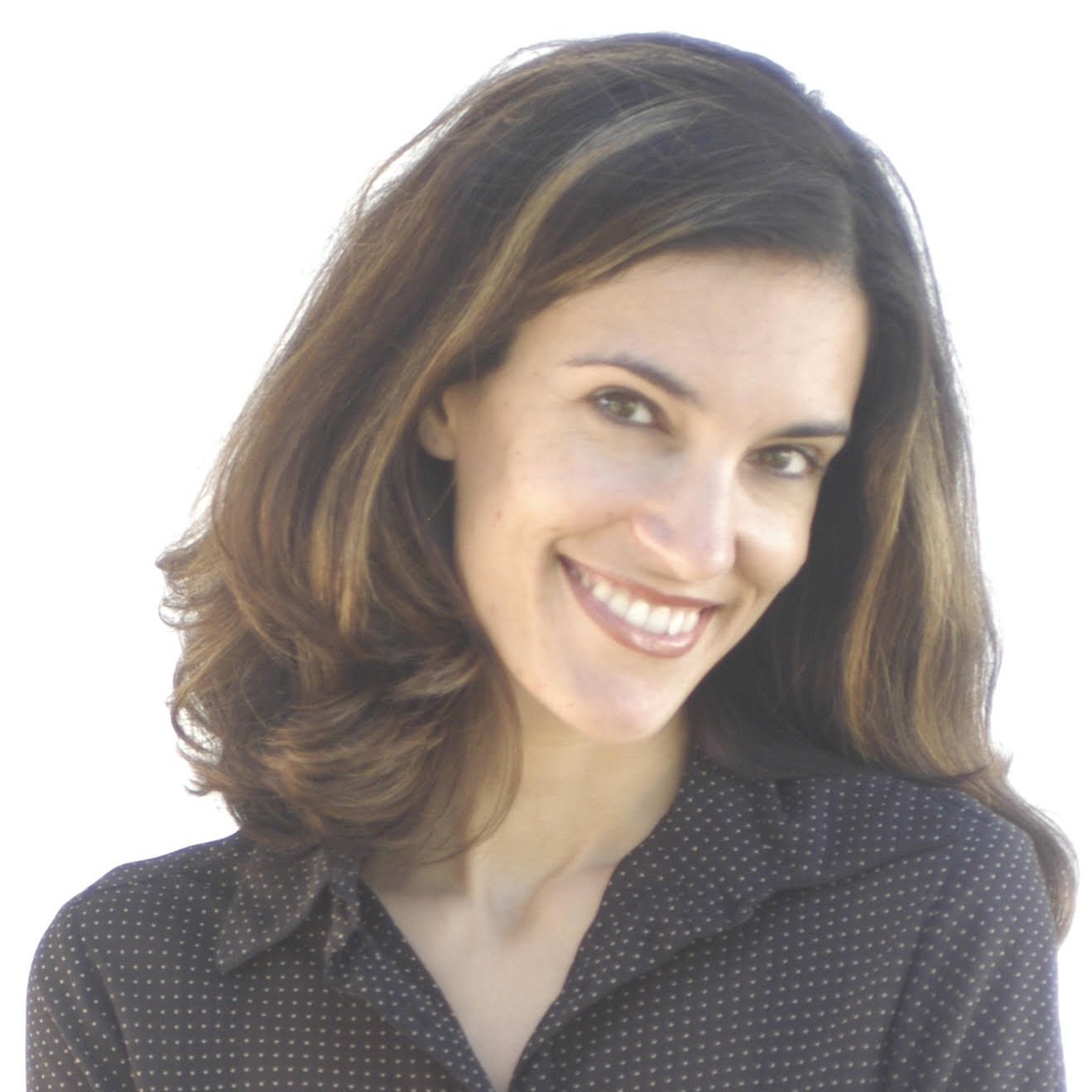by Maria Radloff
Happy Pride! We are celebrating this colorful time of year by featuring two inspiring NAMA members active in our LGBTQ+ community.
I was able to catch Sebastian Urrea, AD, mid-move as he heads to the country of Colombia. He is a Professional NAMA member who identifies as gay, and he shares some highlights from his personal Ayurvedic journey, along with some tips for being welcoming and inclusive of the LGBTQ+ community. Then Anuradha Gupta, CAP, an AD student and passionate LGBTQ+ ally, will share why it’s important to advocate for this community, especially in the provision of Ayurvedic healthcare services.
Sebastian Urrea: Dancing through Life
Sebastian Urrea is an AD graduate from Alandi Ashram in Boulder, CO. He has most recently worked as an instructor at The Ayurvedic Institute in Albuquerque, New Mexico. This is his story.
Yoga Point Ashram, Nasik, India
For the love of Ayurveda
I have always been taught that you don’t choose Ayurveda, it chooses you. But I still wanted to know what drew Sebastian to leave his sweet little residence in Boston for a four-year Ayurveda Doctor program in Boulder.
While attending a yoga teacher training in India, a few lectures on Ayurveda plucked at his heart strings. He felt a deep draw to it as he felt a lack of clarity on what good health is and Ayurveda offered up some big answers and a new framework in which to understand it.
Other enticing aspects of Ayurveda were its timelessness and its focus on individuality. At its foundation are the pancha mahabhutani, the five great elements. Growing up like most kids enjoying video games and their focus on the magical powers contained within, the elements were familiar and exciting—and Ayurveda placed them at the very core of health!
Starting the journey
Remember how I mentioned you don’t choose Ayurveda? Well, that’s exactly what Sebastian confirmed. He had never experienced such interest or fascination with anything else as he did with Ayurveda. He felt drawn to it on such a deep level that he headed west to study under Alakananda Ma and Sadanandaji at the Alandi Ayurveda Gurukula in Boulder, CO.
Sebastian raves about the ashram and the small, loving community that resides there. Trained in London as a Western medical doctor, Alakananda Ma wove that perspective into her Ayurvedic teachings, illustrating how Ayurveda can be a beautiful complement to allopathic healthcare.
Ayurvedic Doctor program at Alandi Ashram
An exciting opportunity
Once Sebastian graduated, it was time to look for career opportunities. Grateful for the opportunity to move away from busy adult life to study in a four-year Ayurvedic training program, he felt called to be of service by entering this field to inspire others on their own paths. And that call was answered by The Ayurvedic Institute in New Mexico.
Landing a teaching job in Albuquerque was the opportunity of a lifetime. His teacher had been a student of Dr. Lad’s, so Sebastian could carry on this lineage while pursuing a career focused on one of his passions--plants. Well-versed in the properties of herbs and the intricacies of herbal formulations, he was eager to share his knowledge and experience with the students at the Institute.
Working with clients as an Ayurvedic Doctor
Serving as an Ayurvedic clinician
At the heart of this story is the importance of connecting with people. Sebastian feels that it’s vital for him as an Ayurvedic clinician to engage in spiritual practices that foster abundant love and compassion for the people he serves. Without these qualities, it is difficult to authentically connect with the individual seeking help with his/her/their health.
One of his spiritual practices is the study of Jyotisha. Sebastian has fervently studied this karmic science and loves offering this service to his clients. He gains great insights into the causes of some of the obstacles they may be facing and is exploring how to best integrate Ayurveda and Jyotisha to help his clients on all levels of healing.
A passion for the planets and the karmas they hold
When I asked Sebastian what his specialty is, he almost went with Jyotisha—he loves it that much! But he then expressed his equal enthusiasm for nidana, emphasizing his strong grounding in classical Ayurveda. He loves assessing the imbalances afflicting his clients, applying the proper remedies (by the book, of course), and finally, achieving great results. He focuses on the individual client’s experience so that he may apply the Ayurvedic system directly and share the most relevant and specific information with each person.
Enjoying the fruits of one’s actions
Picking the proverbial fruit of knowledge
So, what happens when you read from the Ayurvedic handbook of life? As Sebastian eased into an Ayurvedic lifestyle, he began to feel more empowered. There was less struggle. Things just made more sense. There was real freedom of choice.
He came to see that life shouldn’t be dictated by doing good things and avoiding bad. It’s more about understanding the consequences and then choosing what you can “afford.” When you stop and consider the qualities of the things, it’s easy to see what will feel good, what might not end well, and what you can get away with for a while without experiencing problems. This is conscious living.
Some personal results from living with such awareness included the ability to make better eating choices by looking objectively at Western diet culture and getting past the hype. Paying closer attention to the transitioning of the seasons and being able to flow with their gunas (qualities) as they come and go was balancing and stabilizing. And finally, connecting with others became easier because by understanding their qualities, you understand people. In that understanding is compassion and acceptance.
““Things are what they are. They give what they give. The gunas give the results they do. Understand that, don’t judge it.””
The rainbow connection
Sebastian is clearly a gifted clinician, but I was still curious about the boons of identifying as gay. How did that help his practice? He noted that being LGBTQ+ puts you outside the box, so going a little further outside norms isn’t a big deal. Working in a new health framework like Ayurveda is also outside the box. Many people drawn to alternative healthcare are ones who aren’t well served by allopathic medicine. They too, are outside the box.
Working as an LGBTQ+ healthcare provider with the LGBTQ+ community works well because there is more shared ground and understanding on which to build a connection. Being outside the box makes it easier to connect with others who may also feel outside cultural norms, which honestly, don’t we all? Still, non-LBGTQ+ providers who understand this population and respond to its needs can also serve it well.
Connecting
Being welcoming, curious, and open to non-normative answers builds trust and strengthens a provider’s relationship with the client. A willingness to show some vulnerability is helpful, particularly when asking the client to expound on a topic that is unfamiliar. It’s okay to admit not knowing everything, and it’s especially important to know your limits. Some cases need to be referred to another provider. Have a good list of resources such as specialized counselors and therapists, allopathic providers, and professionals in other alternative healthcare fields.
Because Ayurveda is an individualized healthcare system, we need to be able to collect the whole story. How can we, as healthcare providers, create a safe, welcoming space for our client to express his/her/their true story without feeling judged? For example, an LGBTQ+ person could be going through a divorce, suffering from an STI, or transitioning, but there could be hesitancy to share these experience if that individual doesn’t know how the information will be received. Creating this safe space for connecting and receiving information is a vital part of an Ayurvedic practice. It is what makes a good Ayurvedic clinician great.
Knowing a practitioner or clinic is an ally can be a great relief to prospective LGBTQ+ clients. It is helpful for providers to be proactive in letting this community know they are welcome by posting a diversity inclusion statement on their website or at their office. Symbols such as the HRC’s equal sign symbol that went viral a few years ago, a rainbow, or a triangle are also great ways to communicate your allyship.
Having a little waffle trip now and then is A-Okay
The struggle is real
So far, I have painted a fairy tale story of Sebastian’s passion for Ayurveda. And I can confirm that it isn’t far from the truth. But there is always some struggle and food and health challenges have been a part of his journey. In accordance with Ayurvedic principles, he constantly strives to find balance in his dietary practices. He loves learning the history of foods, how they were used traditionally and eventually modernized. He has studied foods that aren’t native to India and Ayurveda to learn about their qualities and benefits.
Foods can be powerful and healing, but their role in sustaining health is also quite complicated, and it’s easy to get wrapped up in the rigidity of choosing and cooking foods and scheduling mealtimes according to Ayurvedic principles. Sebastian has even succumbed to the pressures of orthorexia—an obsessive concern with proper eating habits. He knows he has tripped up many times, but learning to see where and when he stumbles and veers off course makes it a little easier to find his way back to a balanced approach.
I inquired where he has found inspiration and support along the way. He has access to many great resources, such as his Ayurveda instructor and mentor Alakananda Ma, his Jyotisha mentor Sam Geppi, and his employer Dr. Lad, as well as books and recordings from many great teachers such as Dr. Svoboda. And when he is really struggling, the Bhagavad Gita is one of his greatest resources for peace and solace.
The final dance
Sebastian is excited about the potential of Ayurveda as he continues to teach and grow his own practice, sharing his love of Ayurveda. He knows that when it comes to being truly successful, integration is key. When Ayurveda connects with Western medicine, a truly individualized, impactful medicine is possible, especially in preventative care.
Ayurveda isn’t about perfect health. There is no final destination. Ayurveda is a dance, a flow of actions executed to help us adapt to constant change. It connects the outer world to the inner world. Ayurveda encourages us to work toward conscious living and self-awareness and to break out of dysfunctional behavior patterns; it is only by pursuing these aims that we can experience true freedom of choice.
Health and vitality are possible for all. Connect. Dance.
Sipping tea in India, where it all began
Anuradha Gupta: Powerful Voice and Ally of the LGBTQ+ Community
There are many voices in the world currently rallying for peace, hope, change, and equality, but none quite as powerful and passionate—almost pleading—as Anu’s. There is a Sanskrit root word that often crops up in Ayurvedic terminology—sva. It means “established in oneself.” And Anu is sva. She is so whole that she can continuously give and be filled at the same time. This is her story.
Finding her way
Ayurveda had always been a part of day-to-day life growing up in India. However, some of the wisdom and lineages were lost as a result the ban on Ayurveda while India was under British rule. Anu’s great-grandmother was a Vaidya during that time and fought for the survival of Ayurveda in India. Anu was formerly an engineer and a bit skeptical about this healing tradition—until the birth of her son. When he developed health problems, she realized that allopathic medicine wasn’t fixing them—it didn’t address their root causes and had major side effects. Having seen her son several times on the verge of death from anaphylactic food allergies and asthma, she was reluctant to completely abandon Western medicine. But she eventually saw a major improvement in his health from the application of Ayurvedic wisdom and that convinced her of Ayurveda’s potential to enhance healthcare and of the importance of what her great-grandmother had fought for.
Anu Gupta (she/her), CAP, Ally of LGBTQ+ People
Infused with her great-grandmother’s warrior spirit, Anu is an ally and fighter for equality, primarily for the LGBTQ+ community. Anu is a writer and co-founder of the practice Ayurvedic Footprints. Currently enrolled in the Ayurveda Doctor program at Kerala Ayurveda Academy, she is specializing in internal medicine and hopes to present her research paper on best practices and standards in Ayurvedic healthcare for the LGBTQ+ community.
Anu is on the board of the local chapter of the oldest LGBTQ+ organization in U.S., PFLAG, and volunteers for Art of Living, as a contributor to its mission of promoting peace through meditation. In keeping with the tenets of Ayurveda, she believes meditation helps create a more inclusive world and recently wrote about this idea for the Art of Living Retreat Center. Read How Meditation Could Help Create an Inclusive World here.
The reality
Before we continue, I would like to share some relevant stats about the LGBTQ+ community. They are a marginalized community facing high rates of stress, violence, and suicide, and, in more than half of U.S. states, frequent instances of legal discrimination.
Nine in ten LGBTQ+ youth report being harassed in school (GLSEN).
According to the Trevor Project,
More than 1.8 million LGBTQ+ youth (aged 13–24) seriously consider suicide every year and at least 1 attempts suicide every 45 seconds.
Suicide is the second leading cause of death in this population.
45 percent of LGBTQ+ youth seriously considered attempting suicide in the past year, including more than half of transgender and nonbinary youth.
Nearly 1 in 3 LGBTQ+ youth are rendered homeless.
Members of the LGBTQ+ community are four times more likely than non-LGBTQ+ individuals to be subjected to violent crimes.
UCLA School of Law, Williams Institute:
https://williamsinstitute.law.ucla.edu/press/ncvs-lgbt-violence-press-release/
There are an estimated 11 million LGBT adults in the U.S. Over 5.4 million live in states without statutory protections against sexual orientation and gender identity–based discrimination in housing, healthcare, education, and employment, and 7.7 million lack legal protections against discrimination in credit. UCLA School of Law, Williams Institute: https://williamsinstitute.law.ucla.edu/publications/lgbt-nondiscrimination-statutes/
Lack of legal protection
I can hear the sadness in Anu’s voice as she continues to share stats and disturbing stories that are emerging in the news. Progress toward equal rights is eroding; people are becoming less tolerant. How can this be happening?
Knowing that LGBTQ+ clients may have unique healthcare needs or may not even have access to Western medical care makes Ayurveda relevant in today’s healthcare system. Some of Anu’s greatest concerns about this system include the persistance of inequality and barriers to access and acceptance. The LGBTQ+ community often does not seek healthcare due to fear of discrimination or for fear that providers could be abusive or even deny healthcare altogether. It’s not unheard of for a suicide to occur in a hospital where an LGBTQ+ person is seeking care.
Ayurveda as a holistic, natural science of life is uniquely poised to help with these challenges, as well as to meet this community’s unique needs, such as minority stress and trauma. Ayurvedic healthcare must remain in line with Ayurvedic philosophy and offer a safe, healing, and welcoming space.
Take a stand
Ayurveda teaches us that consciousness is nonbinary. We see sexual fluidity across a range of animals and even plants, so to deny its role in shaping the gender identities and sexual orientations of human beings is to deny nature itself. Vasudev Kutumbhakam. The world is one family.
Ayurveda affirms everyone. We are all of one nature.
Many Ayurvedic schools and professional associations are already declaring their commitment to diversity, equity, and inclusion and nondiscrimination policies. It’s important for healthcare practitioners to affirm these values and strengthen support for the LGBTQ+ community. Violence against LGBTQ+ people is increasing. Suicides are skyrocketing. Mental health services are falling short of an answer to this growing problem. What can we do?
Anu’s graduation from her Ayurveda Practitioner program
Be an ally of LGBTQ+ people. Be a voice that doesn’t tolerate discrimination. Be visible and welcoming. Validate their existence. Keep them safe.
Here are some steps Ayurvedic providers can take toward becoming a strong ally:
Openly state that you’re an LGBTQ+ inclusive and affirming business and post a diversity statement. Don’t make them scan to determine if you’re safe.
Educate yourself; understand what gender identity and sexual orientation mean and how to handle healthcare within your scope of practice.
Create a safe space. Allow for open conversation. Listen. Compassionately ask questions. Don’t react to or judge the information you receive—be comfortable with whatever is shared.
Use inclusive language and pronouns, both yours and theirs. Honor chosen names.
Review your intake forms to ensure they accommodate the variety of gender identities and sexual preferences.
Know your limitations and don’t be afraid to refer to another specialized healthcare provider.
Avoid microaggressions and derisive jokes.
Offer a gender-neutral bathroom if you run a clinic or have a storefront.
Support equal rights and nondiscrimination policies for all communities.
Stand up to bullies and protect your community. Don’t be silent.
Remember that Vedic philosophy is inherently inclusive and as a practitioner, align with it.
Do no harm.
Anu’s co-worker Stevie
Anu with daughter Himadri Gupta
You are not alone. We are fighting for you.
When you are at work and need a little break or downtime, try reciting these mantras a few times:
The future is inclusive.
I stand for peace.
I asked Anu where the inspiration for her dedicated allyship stems from. Anu feels very fortunate for the many LGBTQ+ people and rogis in both her personal life and Ayurvedic practice. She listed her Vaidya mentors from Kerala Ayurveda; her senior, Vaidya Mamta Gupta; beautiful LGBTQ+ poets such as Mary Oliver and Audre Lorde; trans activists like Laverne Cox; children’s rights activist Kai Shappley; Alok Vaid-Menon (they/them), an internationally acclaimed gender non-conforming performance artist; and Rebekah of the Gender Cool Project.
Anu operates from a whole-hearted sense of compassion and social justice. She worked extensively with Stevie Jiyo, including interviewing her for an article for Kerala Ayurveda, “Representation Matters”; they are now buddy-allies. And yet there is still more to her story. Anu has a daughter who identifies as lesbian. A daughter that inspires her more than anything else with her wisdom, groundedness, boundaries and her talents as a crisis counselor and domestic violence advocate. One of Anu’s most cherished moments is when Himadri Gupta was upset, yet sat still and waited for the “mud to settle” before reacting. This saying comes from an old Dharma story of not being able to see clearly when the rippling water appears muddy, but as the mud settles, the water becomes clear as day.
Anu with Vaidya Jayarajan Kodikannath, BSc., BAMS, AD, her primary teacher/mentor and family Vaidya who created the possibility of Ayurveda in her life
The possibilities
Many in the LGBTQ+ community are unaware of Ayurveda or what it has to offer. There is so much potential to share this all-inclusive health framework and begin to heal what our world continues to tear apart. In Anu’s experience, the LGBTQ+ community is curious about alternative healthcare options, so with a little work in educating ourselves in providing competent care, creating safe spaces, and publicizing our affirmation of this community’s values, Ayurvedic providers can be great fit for the LGBTQ+ population. Nobody should be afraid to seek healthcare and never, ever should anyone be damaged by it. Ultimately, we need to empower and heal the LGBTQ+ community. Ayurveda is about everyone living life to its fullest potential. And it is our role as human beings to assist everyone in doing so, irrespective of race, ethnicity, gender identity, expression, or sexual orientation.
Thank you to Sebastian Urrea, AD, and Anu Gupta, CAP, for their contributions to this story. If you would like to reach either of these NAMA Professional Members, please visit their websites:
NAMA is committed to raising awareness and deepening understanding of the issues of diversity, inclusion, and transparency in our organization and the larger Ayurvedic community. To learn more, please visit:
About the Author
Maria Radloff is currently a student at Kerala Ayurveda Academy and practices and teaches Ashtanga Yoga and Sanskrit. Besides her passion for yoga, she loves design and writing and works as a graphic designer, specializing in non-profits and yoga businesses.


















